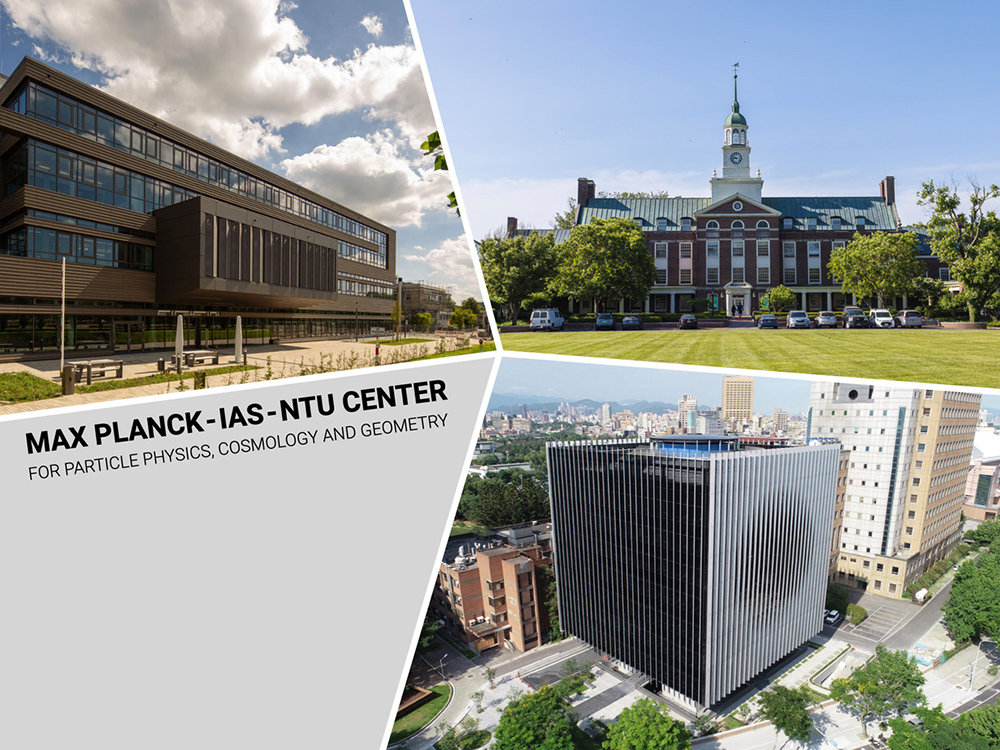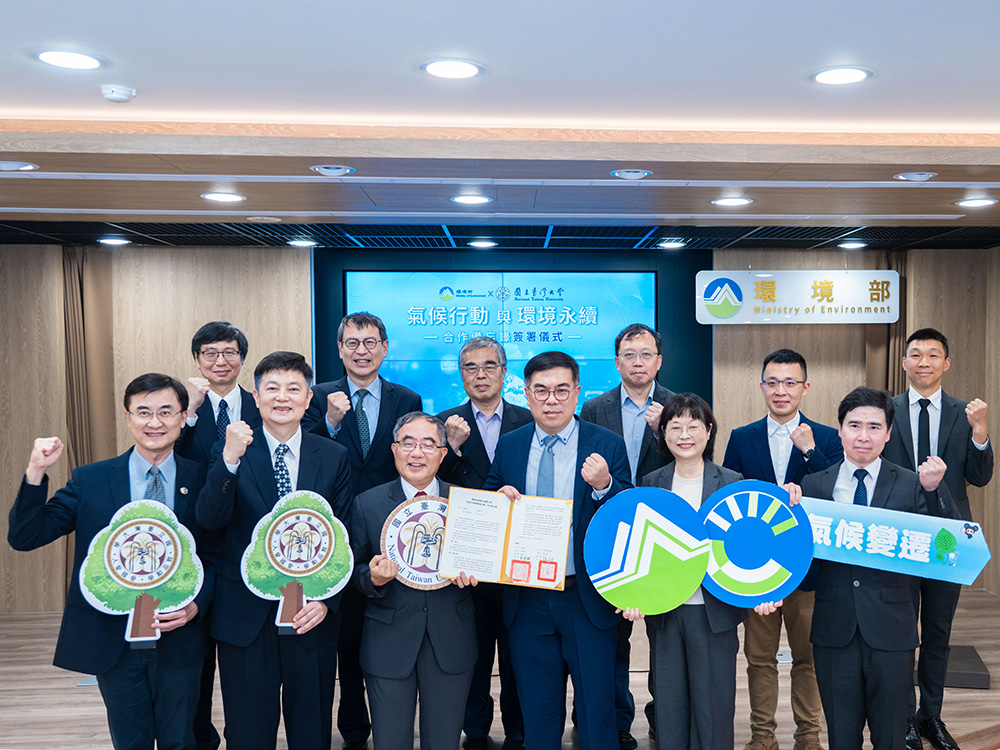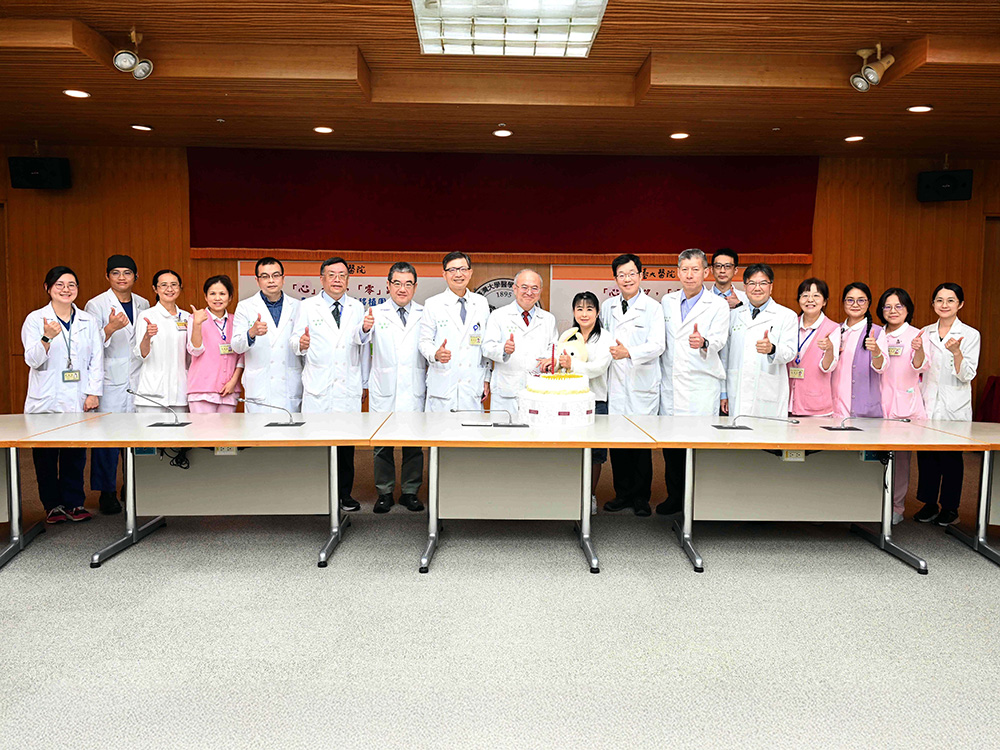
A Distinguished Global Research Center Established at NTU under Trilateral Cooperation
瀏覽器版本過舊,或未開啟 javascript
請更新瀏覽器或啟用 javascript
Spotlights
Cathay Financial Holdings Chairman Hong-Tu Tsai (third from left), NTU President Wen-Chang Chen (third from right), and NTU Executive Vice President Wan-Ru Tseng (second from left) unveiled the plaque of the Center for Innovation in Enterprise Law (CIEL).
On May 12, 2025, National Taiwan University held the opening ceremony and international forum for the Center for Innovation in Enterprise Law (CIEL), marking a significant milestone in advancing cross-disciplinary research and innovation in enterprise law at the university level. The center is envisioned as a neutral think tank, dedicated to integrating interdisciplinary academic resources from within and beyond NTU, in order to address the practical challenges facing business and legal systems, and to elevate the international competitiveness and influence of Taiwan’s legal framework.
CIEL is led by Prof. Wan-Ru Tseng, NTU’s Executive Vice President and CIEL’s founding Director. She emphasized the center’s guiding principles: practicality, integration, foresight, and talent nurture. CIEL will focus on four core areas of research: business organizations and corporate governance; fintech and financial regulation; the digital economy and financial crime; and wealth succession and sustainable enterprise management. The center also aims to regularly produce policy-relevant and internationally aligned legal proposals through mechanisms such as industry salons, national forums, and international conferences, while cultivating a new generation of legal scholars. During the opening ceremony, Mr. Hong-Tu Tsai, Chairman of Cathay Financial Holdings; President Wen-Chang Chen of NTU; and Vice President Wan-Ru Tseng jointly unveiled the center’s plaque—a symbolic gesture of shared commitment among industry, academia, and government to advancing the legal landscape.
Prof. Tseng emphasized that CIEL is NTU’s first university-level center dedicated to law. It is part of President Chen’s broader development plan and recognized as one of NTU’s ten strategic research areas. She expressed gratitude to Mr. Hong-Tu Tsai—an NTU Law alumnus—for his longstanding support of the university’s teaching infrastructure and facilities. The center, she noted, will focus on addressing pain points faced by businesses and industries, offering viable and critical legal proposals through a regulatory adaptation platform that unites academia, industry, and policymakers, fostering a sound legal system.
Mr. Hong-Tu Tsai shared his reflections as a graduate of NTU’s College of Law and a U.S.-qualified attorney—though he never practiced law, his business career has made him acutely aware of law’s importance to corporate operations. Drawing from his experience, he remarked that legal developments often lag behind business innovation. He hopes the center will evolve into a stable, long-term platform offering professional insights on current and emerging legal issues. He pointed to developments in IT and artificial intelligence as examples—technologies that bring great promise but also risks, such as identity fraud. He expressed hope that CIEL would become a robust platform for dialogue among academia, regulators, and industry leaders, contributing not only to academic progress but also offering practical legal solutions for enterprises and regulatory authorities.
President Chen remarked that Mr. Tsai has long believed in the close connection between law and international politics, which is why he also supported the founding of NTU’s School of Political Science and Economics. President Chen further highlighted the accelerating pace of technological advancement and the legal complexities companies face in adapting to diverse regulatory environments. He recalled that during a prior meeting with Mr. Tsai, the importance of establishing a dedicated center for enterprise law innovation was a key topic of discussion. He affirmed that CIEL is poised to offer crucial guidance to businesses and will grow into an essential think tank for the government.
The forum’s first session, titled “The Trump Administration’s Legal Policy Shifts and Their Implications for Enterprise Law,” was chaired by Associate Professor Chao-Hung Chen of NTU’s College of Law. Scholars from Singapore, Japan, and Australia were invited to examine how political developments in the US are reshaping the international legal order, particularly their implications for the evolution of Asian legal systems and corresponding strategic responses.
The second session, focused on “Geopolitical Economy and Enterprise Law,” brought together experts in financial regulation, economic law, and capital markets. Discussions centered on how legal innovation can help enterprises and regulatory agencies respond to global risks—especially under the pressures of regional tensions and economic decoupling—and how to foster more resilient business environments through robust legal frameworks.

A Distinguished Global Research Center Established at NTU under Trilateral Cooperation

Collaborative study between NTU and Japan uncovers the origin of Adzuki Beans and agriculture in Japan

NTU and Ministry of Environment Sign MOU to Advance Net-Zero Transition and Environmental Resilience

NTU Hospital’s Cardiac Transplant Team Pioneers Beating Heart Transplant with Zero Ischemic Time

Study of a male Denisovan from Taiwan published in Science
Current Spotlights